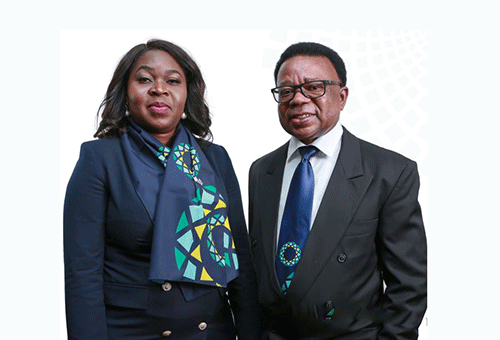While remaining committed to supporting the domestic market by investing in viable corporate bonds when they become available, the Government Institutions Pension Fund (GIPF) has lamented the number of local investment options, noting the Namibian market is still shallow, with limited investment products and issuers.
Due to this shortfall, the bulk of the fund’s exposure to domestic bonds is invested in government bonds.
According to its integrated annual report for 2022, GIPF invested funds entrusted to it in equities, fixed income, derivatives, private equity, collective investment schemes, cash and deposits, totalling N$147 billion as of the end of March 2022.
“The portfolio is invested across various geographical markets, which further helps with portfolio diversification. Geographically, of the total asset allocation for the year, 52% of the fund was invested in the Namibian market (2021: 46%), 17% in South Africa (2021: 19%), 4% in Africa (2021: 6%), 22% in the global arena (2021: 24%) and 5% in emerging markets (2021: 5%),” the report reads.
As part of its strategic asset allocation, the fund allocated 25% of its assets to fixed-income securities, which helps it to generate predictable and sustainable income.
In efforts to stimulate and grow the domestic economy and comply with regulatory requirements of investing a minimum of 45% of its assets in Namibia, during the last three years, GIPF has made significant strides in meeting this, and it has in fact exceeded this threshold by 8%, with 53% of total investments being invested in domestic assets by the year ending 31 March 2022.
According to a joint leadership review, Nillian Mulemi, chairperson of the board of trustees, and CEO David Nuyoma stated the market value of investments in the local economy amounts to N$5.3 billion (2021: N$4.765 billion) through its unlisted investment programme, which is invested in 22 unlisted investment managers and at least 83 Namibian portfolio companies, with more than N$2.1 billion still to be invested.
“These unlisted investments provide exposure to various sectors of the Namibian economy, including property, venture capital and private equity, private debt, agriculture, pharmaceutical and health services, SMEs, renewable energy, infrastructure and affordable housing. We are particularly proud of the active contribution we have made to the housing provision pillar under the Harambee Prosperity Plan (HPP), given the dire shortage of affordable housing in the country,” the joint review states.
The CEO and the chairperson further noted that for the period under review, 1 807 erven were serviced, 5 810 houses were constructed and 2 890 houses were financed across the living standards measure category, the bulk of which are in the affordable housing category.
Through this strategic initiative, it added 1 487 jobs were created throughout the country.
This was expanded by the pension-backed home loan scheme, initiated and approved by the board, which will allow members to use a portion of their pension balances as collateral to purchase land, and renovate or build houses in proclaimed and unproclaimed areas.
The home loan scheme is planned for rollout in the 2022/2023 financial year, added GIPF.
The Namibia Country Private Sector Diagnostic, which was launched last year by the World Bank, stated Namibia needs more than 30 000 housing units annually to fight the backlog the country is experiencing.
According to a recent FNB Namibia residential property report, the average house in Namibia now costs in the region of N$1.2 million.
- mndjavera@nepc.com.na


